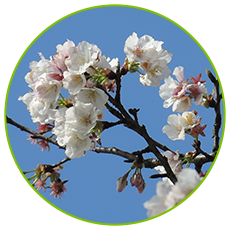Nov . 06, 2024 14:20 Back to list
Enhanced Pollination Boosts Apple's Quality and Yields Beyond Expectations
The Unexpected Benefits of High-Quality Pollination for Apples
Pollination plays a crucial role in fruit production, particularly for apples, which are among the most popular and widely cultivated fruits globally. While the primary goal of pollination is to facilitate the fertilization of flowers and ultimately increase yield, the advantages of high-quality pollination extend far beyond mere numbers. The intricate relationship between pollinators, apple trees, and the environment brings forth a myriad of unexpected benefits that enhance not only the economic viability of apple orchards but also ecological health and sustainability.
Understanding Pollination
To appreciate the benefits of high-quality pollination, it is essential first to understand how it works. Apple trees generally require cross-pollination, meaning that pollen from one tree's flowers must fertilize the flowers of another tree. This process is predominantly facilitated by bees, particularly honeybees and native pollinators, who transfer pollen as they forage for nectar. High-quality pollination ensures that the flowers receive sufficient and compatible pollen, leading to the production of healthy apples.
Enhanced Fruit Quality and Size
One of the most immediate benefits of high-quality pollination is the improvement in fruit quality. Apples that are well-pollinated tend to be larger, firmer, and exhibit better color and flavor. This is particularly important in a competitive market where consumers increasingly seek out high-quality produce. Moreover, well-pollinated apples are less prone to defects and diseases, thus reducing post-harvest losses for farmers.
Increased Yield and Economic Return
Effective pollination directly correlates with increased yields, which benefits apple growers both financially and operationally. Studies have shown that orchards with robust populations of pollinators produce fruits in greater quantities than those with fewer pollinating agents. High yields translate into more substantial profits, enabling farmers to invest further in sustainable practices and agricultural advancements. Additionally, many farmers can diversify their product lines, creating value-added products like cider or apple-based sauces and jams.
high quality pollination can bring unexpected benefits to apples

Biodiversity and Ecosystem Health
High-quality pollination also contributes significantly to enhancing biodiversity in agricultural landscapes. Orchards that maintain a healthy population of bee species and other pollinators create a more diverse ecosystem. These ecosystems support various beneficial organisms, including pests' natural predators and pollinator species, fostering a balanced environment. Healthy biodiversity mitigates the risks associated with monoculture farming and helps control pest populations naturally, reducing the reliance on chemical pesticides.
Climate Resilience
Diverse ecosystems add to the climate resilience of agricultural lands. Higher biodiversity can improve soil health and structure, enhancing its ability to retain moisture and nutrients. Properly managed orchards with thriving pollinator populations are less vulnerable to the impacts of extreme weather, such as droughts or heavy rains. In times of climatic uncertainty, apple orchards that leverage high-quality pollination can better withstand environmental stressors, ensuring stable production over the long term.
Community Engagement and Education
Investing in high-quality pollination practices can also enhance community engagement and education surrounding agriculture and environmental conservation. Many apple growers are now fostering relationships with local beekeepers and engaging in pollinator-friendly practices, such as planting wildflower strips, which not only support pollinators but also educate the community about the importance of these species. Educational programs can teach the next generation the significance of biodiversity and sustainable practices in farming, contributing to a more environmentally conscious society.
Conclusion
In conclusion, high-quality pollination offers far-reaching benefits for apple production and beyond. It enhances fruit quality, increases yields, supports biodiversity, promotes climate resilience, and fosters community engagement. As the agricultural sector continues to evolve in the face of climatic challenges and market demands, understanding and optimizing the pollination process will be paramount. Emphasizing high-quality pollination can forge pathways to more sustainable and productive agricultural systems, ultimately ensuring that we can meet global food demands while nurturing our planet. The synergy between apple cultivation and robust pollinator populations exemplifies a sustainable approach to farming that benefits everyone—from the hives buzzing in the orchards to the consumers enjoying crisp, delicious apples.
-
Artificial Pollination Solutions for All Plant Pollen Types
NewsJul.29,2025
-
Premium Plant Pollen for Pure Pollination & Pollen Block Solutions
NewsJul.29,2025
-
Artificial Pollination Solutions for Efficient Crop Yields
NewsJul.28,2025
-
Premium Cherry Pollen for Pure Pollination & Different Types of Pollen
NewsJul.28,2025
-
Eco-friendly Fruit Paper Bags with Pollen Block Technology
NewsJul.26,2025
-
Premium Kiwi Pollen for Sale – Fresh Male Kiwi Pollen Supplier
NewsJul.25,2025